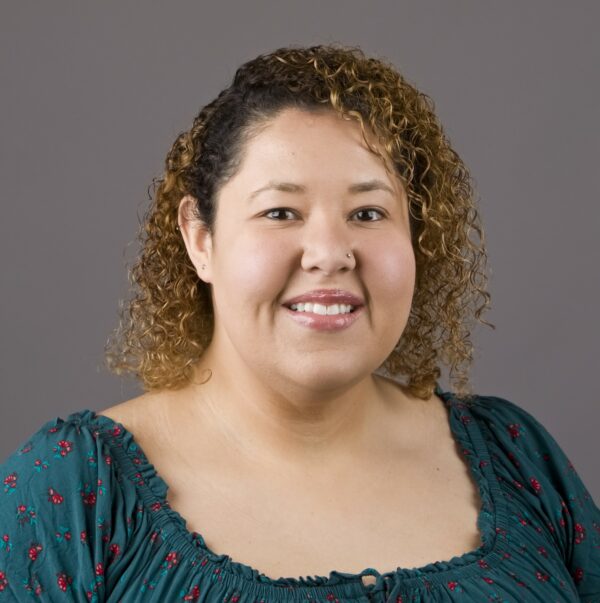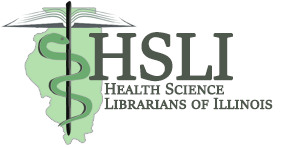Samantha Loster is the HSLI Member of the Quarter! Samantha is Electronic Resource Management Librarian at Rosalind Franklin University of Medicine and Science’s Boxer Library.

Since you are relatively new to HSLI, how did you first learn about the organization and decide to become involved?
I didn’t learn about HSLI until I was in school for library science. I vividly remember my now boss, Charlotte Beyer, sending me information on all the different organizations and the most pertinent acronyms for health science librarianship. Now that I’m a Librarian in the health sciences space, I’m trying to make an effort to meet and learn from a many people as I can. I really enjoy the communal and supportive space that I’ve found and look forward to being able to mentor once I’ve gained more experience.
As a major part of your job is managing electronic course reserves and collecting relevant data, what do you view as the main issues or challenges in that area?
We are very lucky in that a majority of our resources provide COUNTER 5 statistics. It can be a bit of a challenge to obtain statistical information when you have to e-mail the vendors. It can also be challenging to compare data if the vendor changes how it provides stats or the types of information. It’s hard to help evaluate usage and product value when the information being provided to do so is not consistent. It luckily doesn’t happen often, but when it does, it really “grinds my gears”.
What is it like working in a library, Boxer Library at Rosalind Franklin University of Medicine and Science, to which students have physical access 24/7?
When I first started working at RFU, it did take a while to get used to the closed stacks system that allowed for the 24/7 access. I couldn’t imagine having open stacks here, however. But that’s mostly because I started working here years after the big switch to open study space. I enjoy the new questions/inquires/problems patrons bring us, since I see them as a puzzle waiting to be solved. Since we are mostly hybrid, I don’t often see everyone in person, but we as a team are really good at communicating/collaborating and even have time set aside to not talk about work. It really helps bond as a team despite the mostly virtual setting.
How have you applied your background in culinary arts to librarianship?
I really don’t use my culinary skills much in librarianship. At one time, my mom and I catered staff meetings for a public library where I worked, but we didn’t keep it going once moved to a new employer. I feel as if I more often utilize my experience working in retail at a clothing store. It gave me experience in how to talk to many different types of people and handle the many emotions that came with them.
With your interest in true-crime podcasts, do you have any favorites that you think would be of particular interest to other librarians?
I’m not sure if they would be interesting to librarians specifically, but I try to find shows that are well-researched. I also have different podcasts for different moods. I find the original narrator for Forensic Files particularly soothing, and I enjoy listening to the science behind solving crimes. I enjoy And That’s Why We Drink because I feel as if I’m chatting with friends. I also enjoy Crime in Sports and Small Town Murders because the hosts are hilarious. Though I would warn that the last two shows are definitely not even close to being safe for work.
